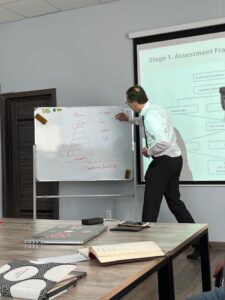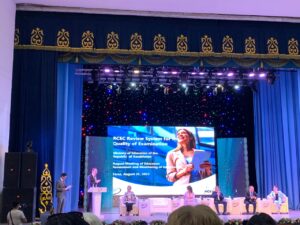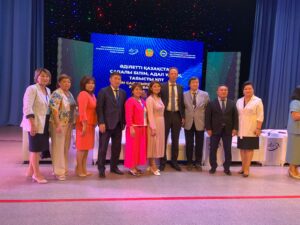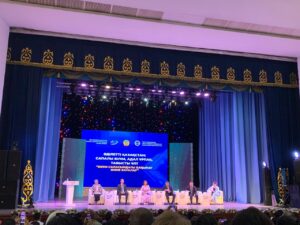RCEC initiates collaboration with the National Center for Education Research and Evaluation, Taldau, in Kazakhstan
The National Center for Education Research and Evaluation Taldau, named after the renowned Kazakh intellectual Akhmet Baitursynuly, has received a directive from the Ministry of Education of the Republic of Kazakhstan. The directive entails the center’s responsibility to modernize the current national student monitoring system over the next two years.
This initiative is named “National Monitoring System of Learning Achievements” (MSLA). The primary purpose of MSLA is to evaluate the reading, mathematics, and science skills of students at the end of their primary education (Grade 4) and lower secondary education (Grade 9). MSLA’s foundation is based on a competency-based national curriculum, referred to as the “State Compulsory Standard of Primary and Basic Secondary Education.”
In an advisory capacity, RCEC has been invited to oversee the intermediate results of the various phases outlined in the project roadmap. Through a tailored audit program, RCEC is providing Taldau with quality standards that will facilitate the systematic development of a reliable, valid, and fair MSLA instrument. The collaborative efforts are directed towards the creation of a dependable digital student monitoring system, which is expected to be adopted by around 7,000 schools across Kazakhstan.
The initial steps of this partnership were taken on August 22nd, as Arnold Brouwer conducted a training session on RCEC’s quality standards for the Taldau project team in Astana. The session fostered constructive dialogue and detailed planning of the initial phases of the project roadmap. The collaborative work will continue in the upcoming period.



Subsequently, Arnold Brouwer delivered a keynote speech at the Ministry of Education’s annual August Congress, an event aimed at educators and professionals committed to maintaining educational quality. The congress was held in Taraz, one of Kazakhstan’s ancient cities with historical significance dating back to the Silk Road era.



We acknowledge Taldau for their hospitality and the opportunity to contribute to decisions related to students’ academic capabilities in Kazakhstan’s primary and secondary education. We are looking forward to the progress of this project with anticipation.

